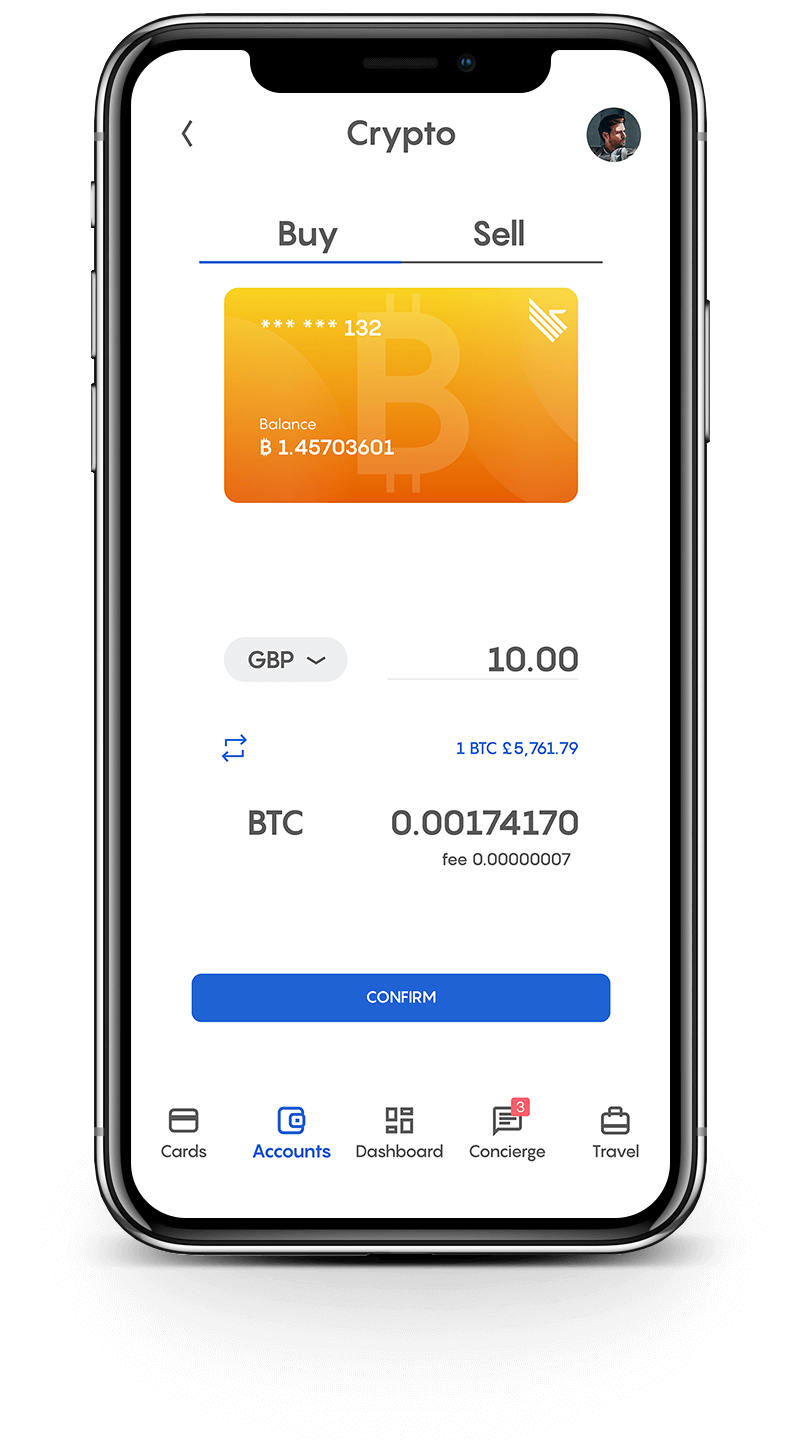The crypto lifestyle has gradually shifted from the fringe to the mainstream, both in terms of what it involves and the number of people embracing it.
Meanwhile, serious work on the underlying technology, better known as the blockchain, is still ongoing. Every other month an application or blockchain offering a new solution is launched.
When blockchain’s full potential is achieved, it will drastically change or even reinvent human society. The impact could be similar or more than what the internet has done in the last three decades.
But what exactly is the crypto lifestyle?
The words crypto lifestyle are used the same way as the words digital lifestyle. In essence, you are living a crypto lifestyle if you prefer or always find yourself using crypto solutions for the tasks in your daily routine.
It is important to point out that the term crypto lifestyle has grown to become some sort of a misnomer over time. It started being used when cryptocurrencies were the only successful applications of the blockchain.
Today, however, we have many blockchain applications that provide services outside of payments. Now you can borrow, lend, chat, play video games, blog, and even stream videos on the blockchain.
Using these other blockchain applications is still considered to be part of the crypto lifestyle.
The early days of crypto
Between January 2009, when Bitcoin came into being, and July 2015, when Ethereum launched, living the crypto lifestyle, for the most part, meant mining bitcoin and trading it.
It was still possible then to join the Bitcoin network using an ordinary computer as a miner and still earn the reward. It was even easier to mine the other coins available at the time, such as Litecoin and Dash (Dark coin then).
Meanwhile, early exchanges like the infamous MtGox were coming up to facilitate the buying and selling of cryptos. However, trading and living the crypto lifestyle also meant connecting with other enthusiasts on sites like Localbitcoin.com and then meeting in person at restaurants, bars, and even public parks to transact.
Of course, the prices of Bitcoin and the other coins were nowhere near where they are today. But those who were all in on crypto believed strongly even during moments of huge market dips that the price would eventually go very high.
Indeed, real crypto believers started to HODL at this very early stage. And to date, this principle of accumulating and holding crypto long-term separates true believers from the rest.
The crypto lifestyle also meant being active in the small Bitcoin communities in local towns and cities. Everyone then into crypto seemed to know others into crypto nearby.
Living the crypto lifestyle also included spending time on online crypto forums like the Bitcoin SubReddit and Bitcointalk. Blockchain was a technology on the internet’s fringes with a small but enthusiastic and active community that had vigorous discussions about the future.
The first merchants to accept crypto, and in particular, Bitcoin, emerged during this time. They include the retail store Overstock, tour company CheapAir and Richard Branson’s Virgin Galactic.
Most of these merchants accepted bitcoin through processors like BitPay, which converted the received coins immediately into fiat. Nevertheless, Bitcoin enthusiasts shopped from these merchants mainly to prove that bitcoin could be used to shop, just like fiat.
Of course, over time, shopping using crypto has become a necessity, especially as people earn more in crypto and want to protect their value from inflation by keeping it in crypto.
Even though over the years more merchants have added bitcoin and other cryptos to the payment methods they accept, the number of places you can shop with crypto around the world is still insignificant.
This has however become an opportunity for exchanges and payment processors. In the last few years, a crypto debit card has become an important item that a crypto enthusiast must have.
A crypto debit card is supported by Visa, Mastercard, or Unionpay but is loaded using crypto. The most used crypto debit cards today are the Coinbase debit card, Binance debit card, and the ClubSwan card.
With a crypto debit card, the list of places worldwide one can shop using crypto grows to millions. Indeed, this innovation has made the crypto lifestyle more accessible.
The arrival of Ethereum
In the early days, the crypto lifestyle revolved primarily around Bitcoin. It was the crypto many knew and was easier to use given the advanced infrastructure in place compared to the other coins.
That, too, of course, has changed over the years. Today, going by the list on Coinmarketcap.com, there are over 13000 coins and tokens traded on various exchanges.
Also, crypto enthusiasts today are involved more with other forms of blockchain assets, such as non-fungible tokens (NFTs).
It is with the launch of Ethereum in 2015 that the capacity to run other types of applications on the blockchain, besides cryptocurrencies, was created. Ethereum introduced smart contracts and Turing complete computing on the blockchain.
Advertisement
Join Club Swan and get... more!

Buy and sell your crypto at the best rates and spend them or transfer them to another wallet. You can seamlessly spend your crypto with the Club Swan card anywhere in the world. Everything from one account, on one platform.
- Buy, sell or store 9 different crypto currencies, including: Bitcoin (BTC), Ethereum (ETH), Litecoin (LTC), Bitcoin Cash (BCH), Tether (USDT), BAT, Paxos (PAX), USD Coin (USDC) and EOS.
- Low fees from 0.5%*.
- One simple rate for buy and sell. No hidden margin built into our prices.
- Seamlessly spend your crypto with the Club Swan card.
- Turn your crypto into traditional currencies.
- Quick and simple wallet to wallet transfers.
- Free transfers between Club Swan members.*
- 24/7 Customer support.
Club Swan's flexible account gives you access to multiple traditional currencies, live real time exchange rates, bank transfers and an elegant metal card allowing you to spend in more than 150 currencies around the globe.
- Live traditional currency exchange rates.
- Bank transfer exchange rates typically 4-8% better than high street banks.
- USD, GBP, EUR, CNY, and JPY accounts*.
- Transfer funds in and out of your account with SEPA/SWIFT/Faster Payment/Fed Wire Payments.
- Spend 150+ traditional currencies around the globe with Club Swan card.
- International ATM withdrawals.
- Daily ATM withdrawal limit $1,500.
- High account limits.
- Free transfers between Club Swan members*.
- FCA regulated for your peace of mind**.
- 24/7 Customer support.
Save precious time and money. Use your Club Swan virtual assistant for your travel needs. We also offer personal shopping, VIP event access and unique experiences.
- Save up to 40% on flights and holidays.
- Exclusive negotiated rates on First and Business class airfares.
- Private transfers.
- Luxury car rentals.
- Personal shopping assistant.
- Luxury product procurement.
- Concert tickets.
- Activity experiences.
- Event access.
- VIP dining & restaurant bookings.
- Private event & party coordination.
- 24/7 live chat concierge support.
Contracts written in code to self execute (smart contract) and Turing completeness made Ethereum a virtual machine. That means it can do everything that a server does but with some added advantages to the end-users.
Applications domiciled on the Ethereum virtual machine offer more security, privacy, censorship resistance, and general reliability than those on a server.
The various applications launched on Ethereum and other blockchains with similar capabilities have impacted lives in many ways and, in particular, redefined what it means to lead a crypto lifestyle.
Now, besides mining, trading, and shopping, if one chooses to live the crypto lifestyle, they can cover many more areas in their daily routine. And that includes using smart contracts to create processes and systems on the blockchain for enterprising.
Indeed, the entrance of Ethereum and other similar blockchains has changed the attitude of crypto enthusiasts. Now, they work towards building and existing in a complex ecosystem where the blockchain has the solution to almost every major problem they face online and even in real life.
Indeed, every crypto enthusiast looks forward to an era when critical systems in finance, supply chains, and even public governance benefit from the efficiency of the blockchain.
The ICO craze
The first successful mainstream use case of Ethereum was as a platform on which startups could raise capital from retail investors. Ethereum provides startups the tools they need to create and sell digital tokens through initial coin offerings (ICOs).
The time between 2016 and 2019 is often described as the ICO craze period. During this time, buying tokens offered by promising blockchain projects became part of the crypto lifestyle.
Many crypto enthusiasts spend a significant part of their time researching new projects to find investment opportunities.
Due to increased pressure from regulators and investor fatigue, the number of ICOs has declined significantly since 2019. Nevertheless, buying tokens is still one of the ways crypto enthusiasts increase their worth and support projects they want to see succeed.
Most of the tokens are now sold as securities, mostly through centralized exchanges like OKEx or on platforms known as launchpads operating on top of decentralized exchanges.
When done on centralized exchanges, the token sales are known as Initial Exchange Offerings (IEOs). Those done on decentralized exchanges using launchpads are known as Initial Decentralized Offerings (IDOs).
Providing liquidity to DeFi
The years 2020 and 2021 have seen the rise of Decentralized Finance (DeFi). The total value locked (TVL) in DeFi has jumped from $12 billion in December 2021 to over $100 billion in November 2021.
DeFi is a special category of decentralized applications (DApps) on the blockchain that provide financial services. They are not owned and managed by any corporate entity, but instead, their processes are managed by smart contracts.
Even though they are applications not managed by corporate entities, DeFi applications need liquidity to be useful. Those that convert between currencies such as Uniswap and Pancakeswap need funds in all the currency pairs they support.
Meanwhile, those that lend, such as Compound Finance, need the money to give out. Anybody with an extra amount to spare can provide this liquidity and earn an interest in return.
It is a passive income as the liquidity provider doesn’t have to do much besides making the funds available.
Many crypto enthusiasts are now liquidity providers not only to generate income for themselves but also to support projects they want to see grow.
Getting entertained on blockchain
The earliest way one could use crypto for entertainment was for placing bets on gambling sites. With the sustained payment embargo on gambling sites, crypto became a lifeline.
Over time, however, blockchain has offered more entertainment solutions.
One way it has done that is to host video games. Instead of the games being on servers, they can now exist on a peer-to-peer network. That improves security, reduces censorship, and allows players to have true ownership of the assets they accumulate in the games, such as skins and weapons.
The first widely embraced video game on blockchain was Cryptokitties, launched in November 2017. This is a game that facilitates users to buy, breed, and sell digital cats. The more rare a breed is the more expensive it turns out to be.
Today, blockchain is being used to build robust metaverses. The technology is enabling the creation of virtual worlds that are independent of any control by anyone. The blockchain metaverses will compete with those the likes of Meta (formally Facebook), Microsoft, and others are building.
With all these developments, crypto enthusiasts can now interact virtually entirely on the blockchain. Even more, these environments give them another opportunity to grow their value as the assets they accumulate can be converted into real-world value.
Traditional investment channels
Blockchain has made it possible that you can get a piece of promising new startups even when you are not a rich angel investor. Indeed, crypto enthusiasts spend a significant amount of their time looking for promising tokens they can buy.
Of course, they also invest through trading, staking, mining, and providing liquidity.
However, it is also possible now to invest in blockchain through traditional channels of investment. For example, Coinbase is a company structured in the traditional corporate way. In April 2021, the company had an Initial Public Offering (IPO), and now its shares are being traded at the New York stock exchange.
There has also been anticipation that regulators, particularly the US Security Exchange Commission, will approve crypto-based exchange-traded funds (ETFs).
This development means crypto enthusiasts would increasingly likely become active in the traditional markets looking for investment opportunities created by what happens in the crypto markets.
Communicate on blockchain
Slowly, crypto enthusiasts are finding it unnecessary to use mainstream communication channels, and the blockchain has offered them better options.
The communication channels on the blockchain are more secure, with high privacy and censorship-resistant.
These platforms are of different kinds. For example, we now have blogging sites on blockchains such as Steemit.
We also have video streaming platforms like D.Tube, Thethatoken, and Chainflix.
When it comes to one on one communication, there are interesting upcoming messaging apps. Session, for example, is a chatting app on the Oxen blockchain that has over 500,000 downloads on Play Store alone.
The Oxen protocol also supports a Tor-like file-sharing network with no central points that can be compromised.
Freelancing platforms
The crypto lifestyle is not complete if one cannot hire or be hired through the blockchain. Several projects have made it possible for sellers and buyers of skill to trade, including the basic smart contract protocols on blockchains like Ethereum.
The most successful freelancing platforms on the blockchain include Ethlance, Blocklancer, and Bount0x.
With these services, a crypto enthusiast does not need to go outside of their community to find work or hire or complete the trading of skills.
In a nutshell, the crypto lifestyle is becoming more comprehensive. One can now work, invest, and even get entertained on the blockchain. Indeed, the ecosystem is growing, making everything possible in the growing internet of blockchain.




